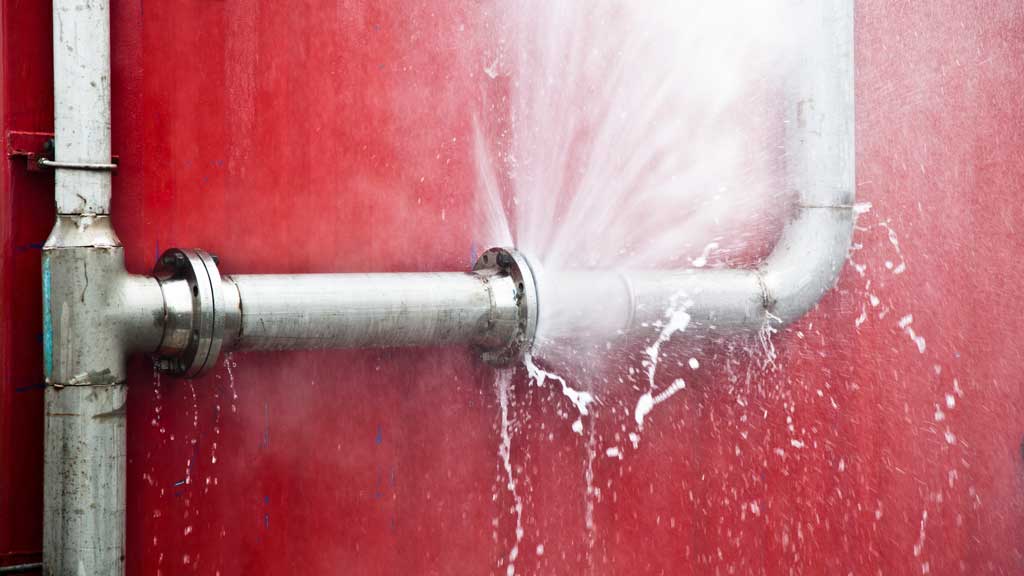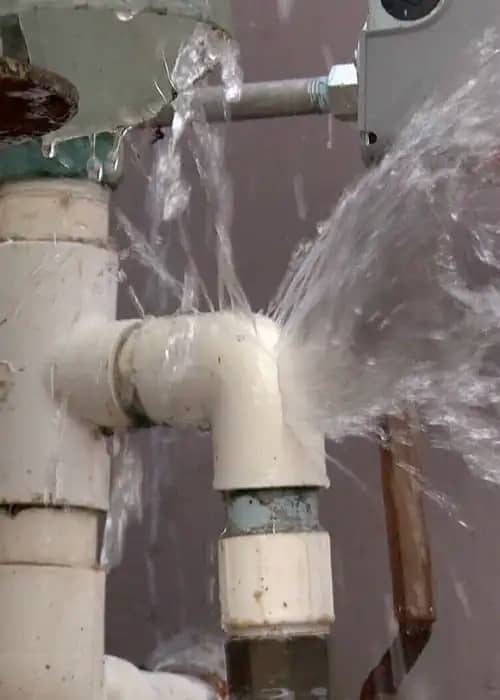Preventing a Burst Pipe: Tips for Protecting Your Plumbing During Winter
Preventing a Burst Pipe: Tips for Protecting Your Plumbing During Winter
Blog Article
Avoiding Burst Water Lines: Essential Tips to Protect Your Pipes
Protecting against ruptured pipes is a vital issue for property owners, particularly throughout cooler months when the danger of freezing is heightened. Executing strategic steps such as proper insulation, regular assessments, and maintaining regular interior temperatures can significantly lower the probability of pipe failing. Furthermore, recognizing emergency treatments furnishes property owners to react quickly to potential plumbing concerns. Lots of are not aware of the particular susceptabilities that their pipes might encounter. Checking out these susceptabilities can provide important understandings into securing your pipes system effectively.
Understand Pipeline Vulnerabilities
Recognizing pipeline susceptabilities is necessary for efficient pipes upkeep and stopping pricey damages. Numerous variables add to the sensitivity of pipelines to ruptureds, consisting of product structure, age, and environmental conditions. Older pipes, particularly those made from galvanized steel or polybutylene, typically deteriorate in time, causing boosted danger of tears and leakages.
Temperature fluctuations can also significantly influence pipeline stability. In colder environments, water caught in pipes can freeze, putting in and expanding stress on the pipe walls, which might eventually result in a ruptured. Additionally, high water stress can strain pipelines, particularly at joints and bends, enhancing the chance of failure.

Insulate Piping Properly
Proper insulation of pipes is important for protecting against freezing and succeeding ruptureds throughout winter (burst pipe). Insulating your plumbing system effectively safeguards against temperature drops that can result in expensive damage. Begin by determining susceptible areas where pipes are subjected to outside temperatures, such as basements, attics, and exterior walls
Use foam pipe insulation sleeves or wrap insulation tape around these areas to provide a safety obstacle. Make certain that all areas of the pipes, especially those with limited heat direct exposure, receive adequate insulation. Pay unique interest to fittings and joints, as these are extra susceptible to freezing.
When shielding, it's vital to pick products that satisfy local building regulations and are ideal for the certain atmosphere. For example, fiberglass insulation is usually advised for its thermal resistance homes - burst pipe. Additionally, think about using warmth cable televisions or tape in extreme problems, which can be plugged in to give extra warm
Routinely evaluate protected pipelines for any type of signs of wear or damage, as endangered insulation can decrease its performance. By taking these proactive actions, you substantially reduce the danger of pipeline bursts, making sure a dependable pipes system throughout the click for source cold weather.
Maintain Regular Temperature Level
A secure interior temperature level is important for avoiding burst pipes during the frigid months. When temperatures decline, water within pipelines can freeze, creating and increasing pressure that might inevitably create the pipelines to burst. To mitigate this risk, homeowners should keep a regular temperature level throughout their home, ideally no less than 55 ° F(13 ° C)Making use of a programmable thermostat can aid handle indoor temperature levels successfully, guaranteeing that rooms with pipes stay warm also when your home is vacant. Pay special focus to areas that are more at risk to chilly, such as attic rooms, garages, and basements. Keeping closet doors open under sinks can additionally enable warmer air from the home to circulate around pipes.
This minor circulation of water can stop cold by alleviating pressure within the pipelines. By executing these strategies, home owners can considerably reduce the threat of pipe bursts and protect their pipes systems versus the severe winter months elements.
Frequently Evaluate Plumbing
Routine inspections of plumbing systems are critical for stopping burst pipelines and keeping total home integrity. During these inspections, it is essential to analyze visible pipes for signs of corrosion, leakages, or use.
Additionally, inspecting connections and joints is crucial, as these factors are frequently at risk to leakages. Homeowners must additionally assess water pressure degrees, as extreme stress can strain the plumbing system and enhance the danger of pipe ruptureds.
Think about scheduling expert pipes examinations at least yearly, particularly prior to winter, to guarantee your system is prepared for see this page colder temperature levels. Routine inspections not only aid in identifying instant issues but likewise foster lasting maintenance strategies that can boost the life-span of your pipes system. By being proactive in your approach, you can protect your home versus the expensive and turbulent effects of burst pipelines. Focusing on plumbing evaluations is an investment in your home's health and security.
Know Emergency Situation Procedures
Comprehending emergency situation procedures is important for every property owner, specifically after conducting routine plumbing inspections. Being prepared for a pipes emergency situation can dramatically reduce damages and conserve prices.
Next, keep necessary devices handy. A pipes emergency situation kit must consist of a wrench, bettor, and towels, as well as a flashlight and a container for tiny leakages. Furthermore, take into consideration having the get in touch with info for a trusted plumbing professional easily offered, needs to the situation escalate past your control.
If you detect a leakage or burst pipeline, promptly shut off the supply of water and notify your plumbing. Record the damages with photographs for insurance policy objectives. Recognize the indicators of possible plumbing issues, such as uncommon water stress variations or damp spots on wall surfaces
Ultimately, positive knowledge and swift action are vital in taking care of go to these guys plumbing emergency situations, guaranteeing your home remains secured and lessening potential damages.

Verdict
To conclude, preventing burst pipelines requires a complex technique that includes understanding pipeline susceptabilities, correct insulation, preserving consistent interior temperature levels, normal examinations, and understanding of emergency situation procedures. By applying these necessary methods, the risk of plumbing failings can be dramatically minimized, therefore guaranteeing the longevity and performance of the plumbing system. Aggressive actions not only secure against prospective damages yet also add to overall water conservation and the security of residential property.
In chillier climates, water caught in pipelines can freeze, putting in and increasing pressure on the pipe walls, which might ultimately lead to a burst. When temperature levels decline, water within pipelines can ice up, expanding and developing stress that might inevitably create the pipelines to burst. By applying these approaches, home owners can significantly lower the danger of pipe bursts and secure their pipes systems versus the severe winter months aspects.

Report this page